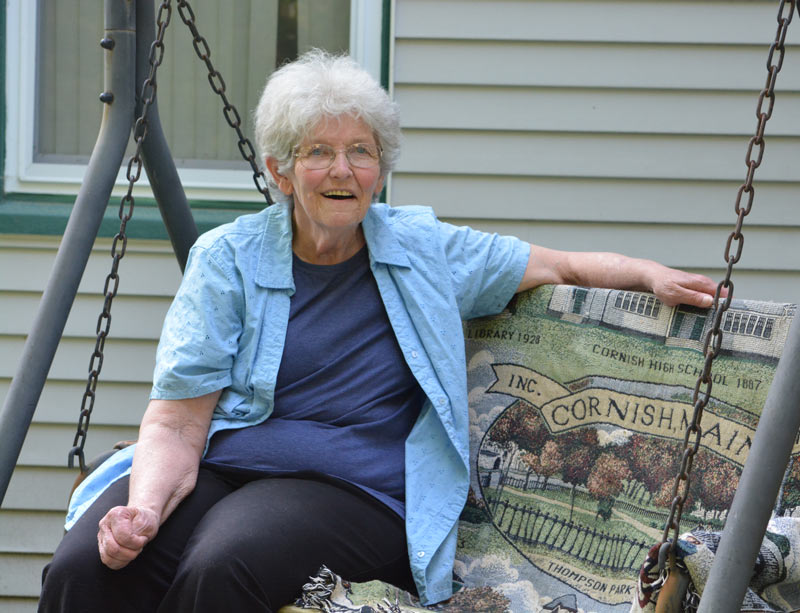We Need a National Registry and New ‘Face of Mesothelioma’

My thoughts on awareness of mesothelioma — a cancer I’ve lived with since 2012 — can be summed up in one word: Advocacy.
But being an advocate can mean many different things.
As an eight-year pleural mesothelioma survivor, I’ve always stressed the importance of self-advocacy. Educating yourself, pushing back when you don’t get the answers you’re looking for and having the guts to seek a second or third opinion can make a huge difference in your mesothelioma prognosis.
Mesothelioma is an extremely rare cancer. These answers are sometimes hard to come by and experts are few and far between.
I often worry about patients who may have surgery at a top mesothelioma center in Boston or Houston and then go back home to receive follow-up care from local medical professionals who don’t fully understand how to treat this rare disease.
Longevity of care is equally as important as initial treatment following a diagnosis.
Mesothelioma isn’t breast cancer. You can’t just go to any hospital or cancer center and likely work with experienced oncologists who know the intricacies of the disease.
This is why we need a national mesothelioma registry. Mesothelioma cases may be a fraction of what we see each year for breast cancer or lung cancer, but having a national database can help share information and trends throughout the medical community, in turn increasing awareness and driving more research.
Another thing the medical community is missing is a new “champion” or “face” in the fight against mesothelioma. We lost that in 2018 with the death of mesothelioma treatment pioneer Dr. David Sugarbaker.
There’s a distinct difference between an expert and an advocate. Dr. Sugarbaker was a rare example of both.
National Registry Would Drive Awareness and Research
Finding a cure for a disease starts with research. I believe a national mesothelioma registry would streamline research, giving our nation’s top scientists up-to-date and relevant data to determine prevalence, incidence rate, risk factors and demographics.
Simply put, the medical community needs a national registry to get a better understanding of this rare cancer.
It will increase awareness, which can drive more research, which hopefully can lead to easier access to novel therapies and clinical trials.
Research takes time, of course. Even if a national registry was approved tomorrow, I may not live to reap the benefits.
But if my diagnosis and experience with mesothelioma can be documented and used as a case study that ultimately helps other patients, I’ll count that as a victory.
Doctors should have access to data such as how people are treated and patient outcomes. There should be a centralized place where researchers can go to analyze everyone diagnosed, and patients should have a place to answer very direct questions about their case on a periodic basis.
Knowing more about these individuals would give somebody the opportunity to look at generalities and trends to help improve research.
Mesothelioma has no cure. Finding one is probably more challenging than with more prominent cancers such as breast cancer or lung cancer, but developing a national registry can only increase interest and improve research in the quest to find a cure.
We Lost an Expert and Advocate with Sugarbaker’s Death
After my diagnosis in 2012, my research on how to best treat my cancer quickly led me to Boston and Brigham and Women’s Hospital.
Specifically, it led me to one name: Dr. David Sugarbaker.
Dr. Sugarbaker performed my pleurectomy and decortication procedure shortly before his transition to the Baylor College of Medicine in Houston.
I was fortunate to have the world’s foremost authority on mesothelioma as my surgeon, and I certainly credit him as one of the main reasons I’m still alive eight years later.
But Dr. Sugarbaker wasn’t just another thoracic surgeon who specialized in asbestos-related diseases.
He was affectionately called “Mr. Mesothelioma” by his patients and peers. If your life has been affected by mesothelioma in some way, you’ve likely heard his name.
Sugarbaker was not only a pioneer of mesothelioma treatment, he was an advocate for awareness. He dedicated his life to raising awareness about this cancer, the dangers of asbestos exposure, the importance of early detection and the fight for a cure.
With his death on Aug. 29, 2018, we lost our champion in that fight. We lost our greatest advocate.
There are dozens of brilliant and talented mesothelioma doctors around the country, but I feel like we’re still missing the “face of mesothelioma” that Sugarbaker represented.
While Dr. Sugarbaker can never be replaced, my hope is that another doctor will soon assume the heavy burden of being an advocate for change and the driving force of mesothelioma awareness.
I believe, like Sugarbaker did, that we should never stop searching for a cure. We need to keep pushing for breakthrough treatments to turn this disease from a terminal cancer into a treatable, chronic condition.
We need to strive beyond the status quo of the same treatment regimen doctors have relied on for decades and adopt new ideas and novel therapies. We need someone who can rally the medical community and inspire young oncologists to specialize in mesothelioma.
With a national registry and a new expert advocate championing our cause, I believe we can increase awareness and change the course of how mesothelioma is viewed — replacing fear with hope.